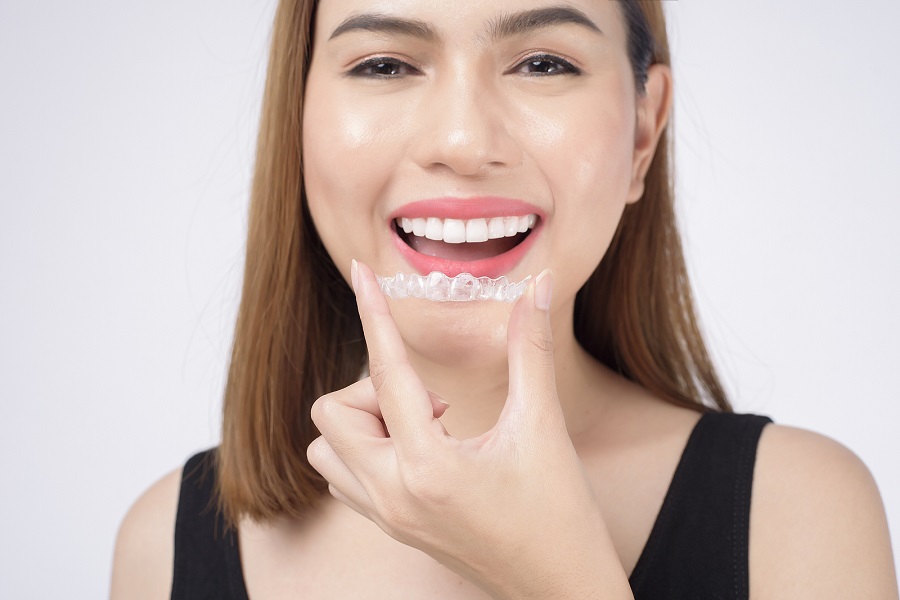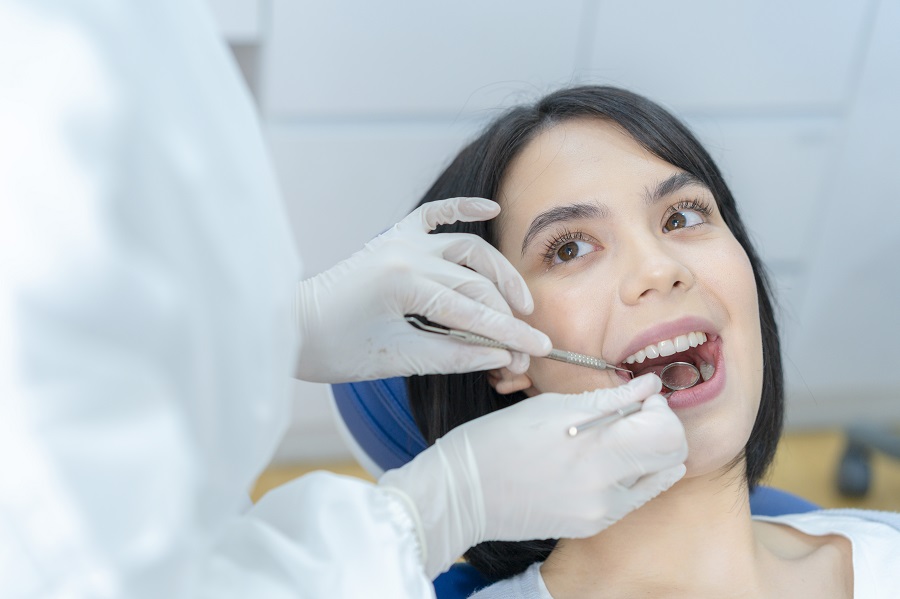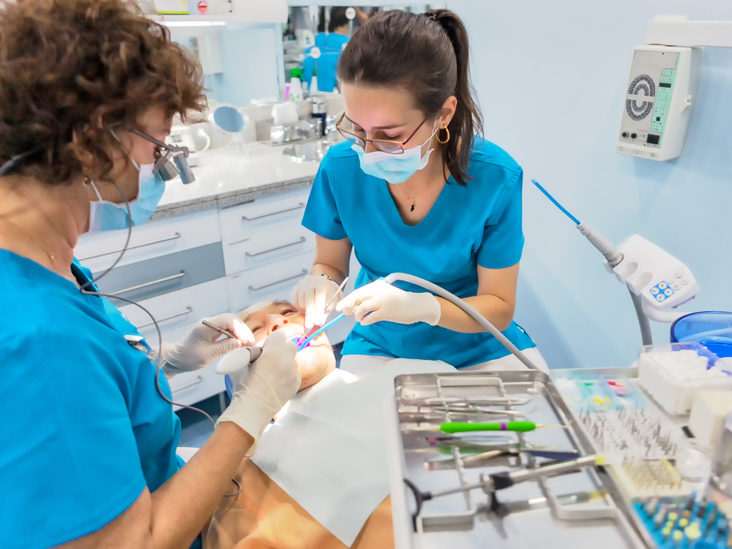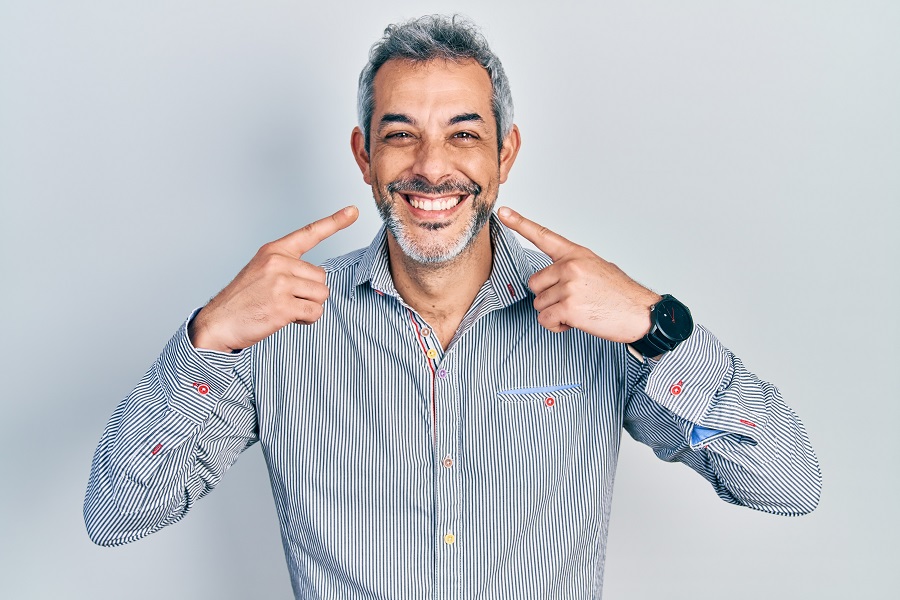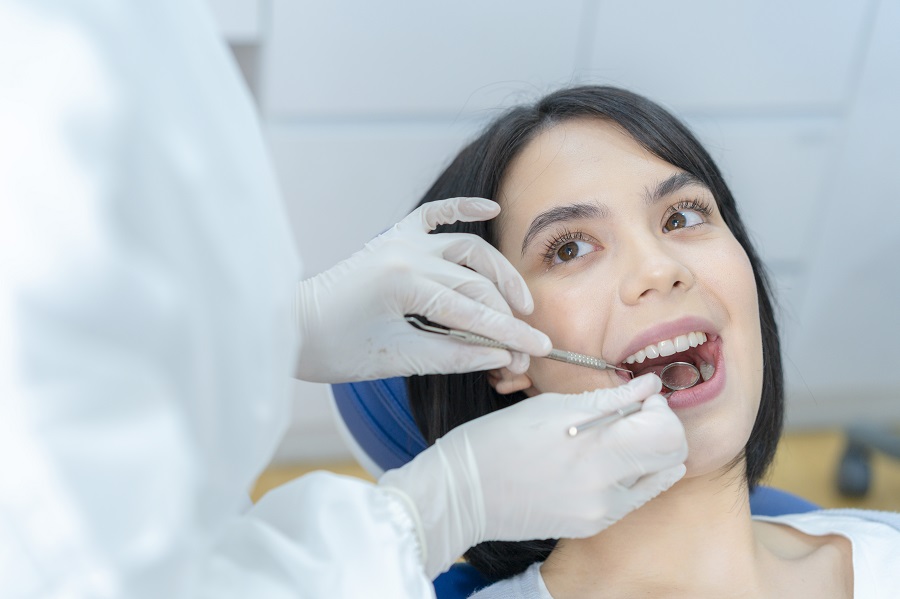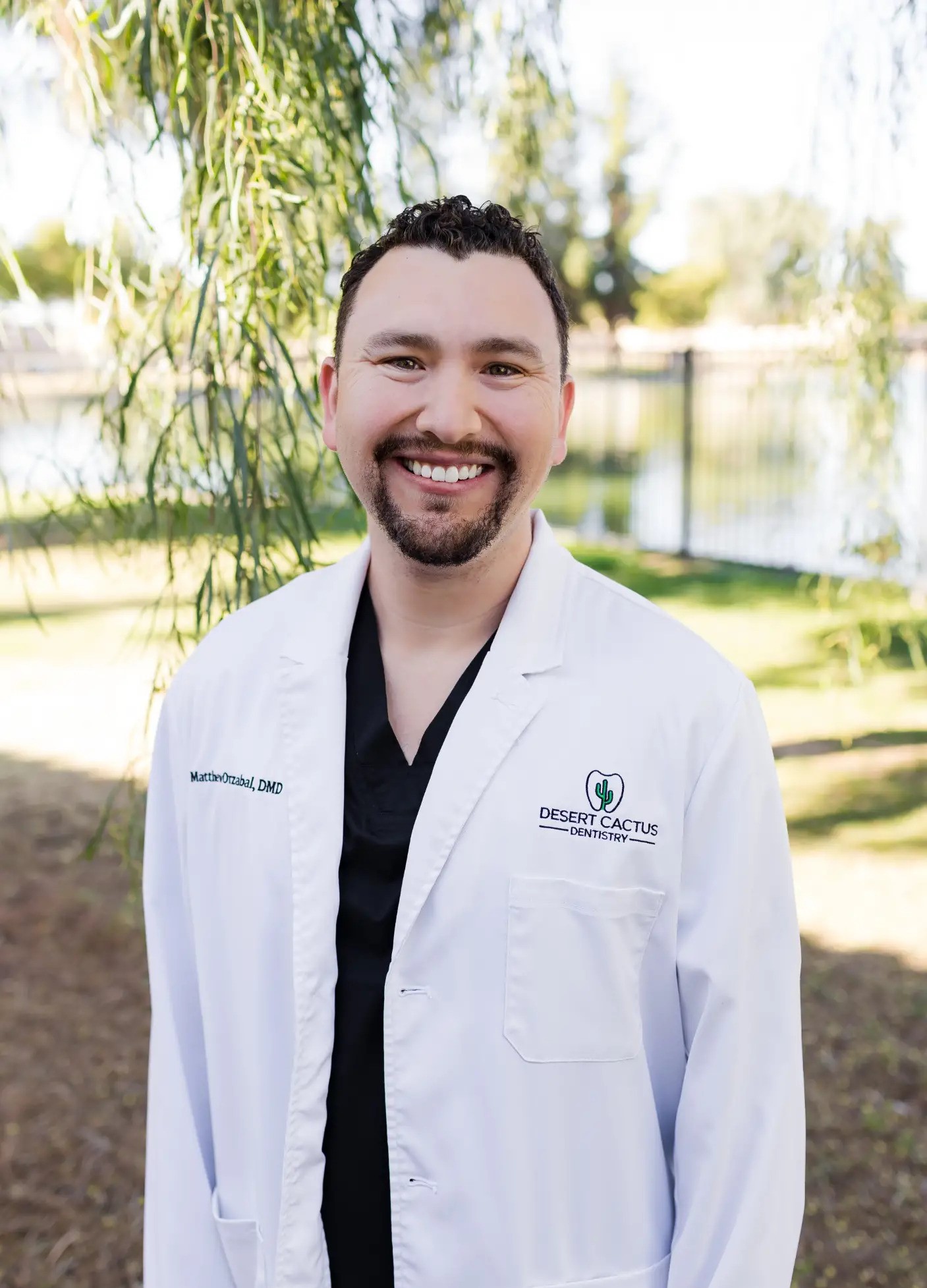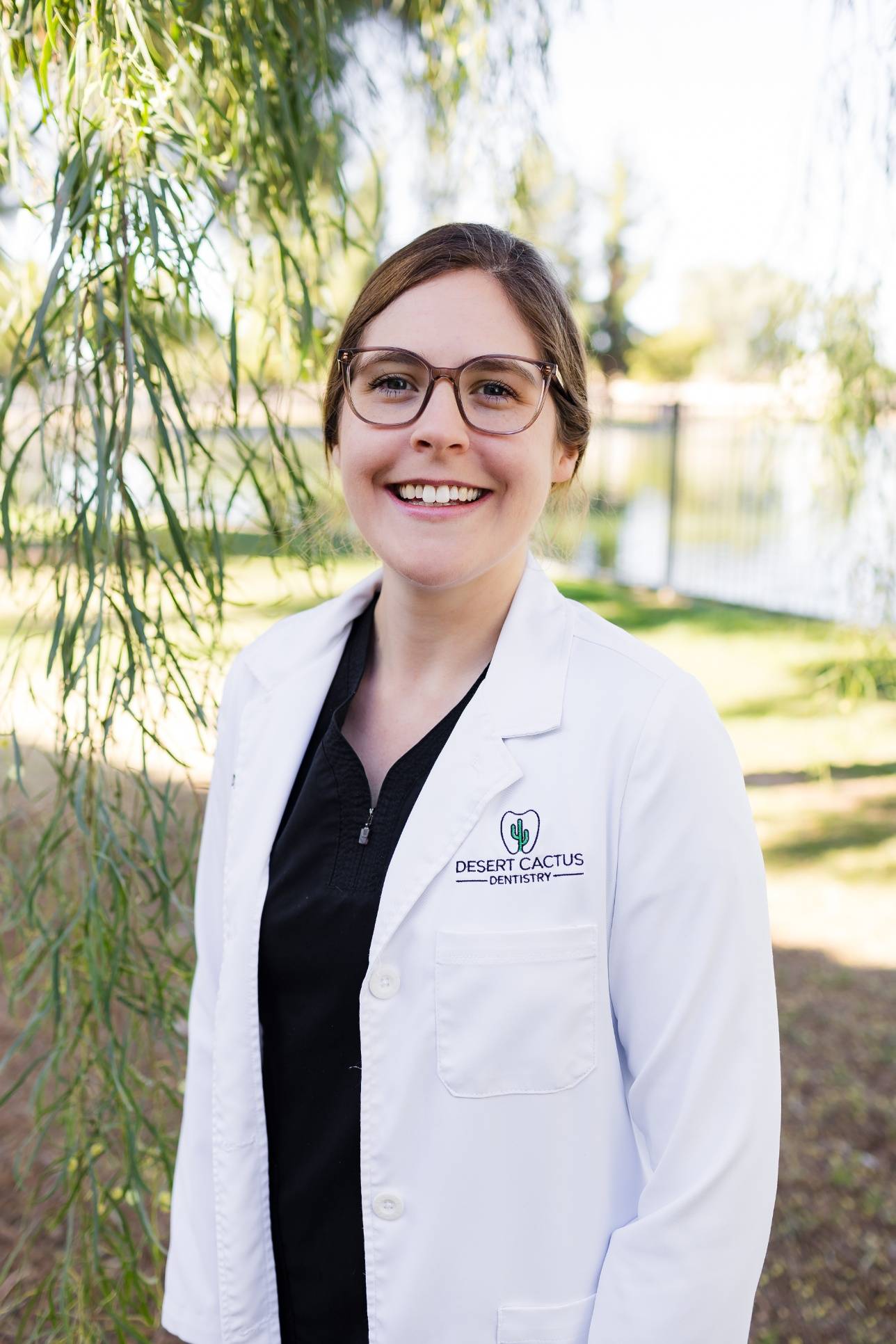Overdentures are a type of removable denture that is supported by and attached to dental implants or natural teeth. Unlike traditional dentures, which rest directly on the gums and can sometimes slip or cause irritation, overdentures are anchored to implants or retained by attachments on existing teeth, providing a more stable and comfortable fit.
There are two primary types of overdentures:
- Implant-Supported Overdentures: These overdentures are secured in place by dental implants that are surgically placed into the jawbone. The implants act as artificial tooth roots, providing a stable foundation for the overdenture.
- Tooth-Supported Overdentures: These overdentures are supported by natural teeth that have been reshaped and fitted with special attachments. The overdenture snaps onto these attachments, providing a secure fit.
In some cases, overdentures can be made to fit over a combination of natural teeth and implants. This approach allows patients to retain as much of their natural dentition as possible while still benefiting from the added stability of implants.
The Benefits of Overdentures
Overdentures offer several advantages over traditional dentures and other tooth replacement options:
- Improved Stability and Comfort: One of the most significant benefits of overdentures is their superior stability. Because they are anchored to dental implants or natural teeth, overdentures are less likely to slip or move around in the mouth. This added stability can make eating and speaking much more comfortable and natural.
- Preservation of Jawbone: When teeth are lost, the jawbone can begin to deteriorate due to a lack of stimulation from tooth roots. Dental implants help preserve the jawbone by providing the necessary stimulation to prevent bone loss. Overdentures supported by implants can therefore help maintain the structure of the jaw and prevent the sunken appearance often associated with tooth loss.
- Enhanced Chewing Ability: Traditional dentures can make it difficult to chew certain foods, leading to dietary restrictions and potential nutritional deficiencies. Overdentures, on the other hand, provide a more secure and stable bite, allowing you to enjoy a wider variety of foods.
- Aesthetic and Functional Benefits: Overdentures are designed to look and function like natural teeth. They can be customized to match the color, shape, and size of your natural teeth, resulting in a more natural-looking smile. Additionally, the secure fit of overdentures can help improve speech, as they are less likely to shift or cause slurred speech.
- Reduced Gum Irritation: Traditional dentures can sometimes cause sore spots and irritation on the gums, especially if they do not fit properly. Overdentures, being anchored to implants or natural teeth, put less pressure on the gums and are less likely to cause irritation.
- Long-Term Durability: With proper care, overdentures can last for many years. The dental implants used to support overdentures are typically made from durable materials like titanium, which is biocompatible and integrates well with the jawbone.
- Cost-Effective Solution: Compared to other full-mouth restoration options, such as full arch implant-supported bridges, overdentures are often more cost-effective. They require fewer implants and can sometimes be made to fit over existing teeth, reducing the overall cost of treatment.
Who Is a Candidate for Overdentures?
Overdentures are a versatile solution that can be suitable for many patients, but there are certain factors that determine whether you are a good candidate for this treatment:
- Missing Multiple Teeth: Overdentures are typically recommended for patients who are missing most or all of their teeth in the upper or lower jaw. However, they can also be used in cases where a few healthy teeth remain, as these teeth can be used to support the overdenture.
- Sufficient Bone Density: For implant-supported overdentures, it is essential to have enough bone density in the jaw to support the dental implants. If you have experienced significant bone loss, your dentist may recommend bone grafting to build up the bone before placing the implants.
- Good Oral Health: Candidates for overdentures should have healthy gums and be free from active oral infections. If you have gum disease or other oral health issues, these conditions will need to be treated before you can proceed with overdentures.
- General Health: As with any surgical procedure, it’s important to be in good overall health. Certain medical conditions, such as uncontrolled diabetes or immune disorders, can affect healing and the success of dental implants. Your dentist will evaluate your medical history to determine if you are a good candidate.
- Desire for a Stable, Removable Denture: Overdentures are a great option for patients who want a removable denture that offers more stability than traditional dentures. If you prefer a fixed, non-removable option, other treatments, such as All-on-4 implants, may be more suitable.
The Overdenture Procedure
The process of getting overdentures involves several steps, including consultation, preparation, surgery (for implant-supported overdentures), and the fitting of the overdentures. Here’s what you can expect during each stage:
Consultation and Evaluation
The first step in the process is a comprehensive consultation with your dentist at Desert Cactus Dentistry. During this visit, your dentist will conduct a thorough examination of your mouth, including digital X-rays and 3D imaging, to assess your bone density, oral health, and the condition of any remaining teeth. Based on this evaluation, your dentist will discuss your treatment options and create a personalized plan for your overdentures.
Treatment Planning and Preparation
If you are getting implant-supported overdentures, the next step is to plan the placement of the dental implants. Your dentist will determine the optimal locations for the implants to provide the best support for your overdenture. If you are getting tooth-supported overdentures, your dentist will prepare the remaining teeth by reshaping them and placing the necessary attachments.
Surgical Placement of Implants (for Implant-Supported Overdentures)
For patients receiving implant-supported overdentures, the dental implants will be surgically placed into the jawbone. This procedure is typically done under local anesthesia, though sedation options are available for patients who prefer them. The implants will be placed in the pre-determined locations, and the gum tissue will be sutured over the implants to allow for healing.
Healing and Osseointegration
After the implants are placed, there will be a healing period of several months, during which the implants will fuse with the jawbone in a process called osseointegration. This process is crucial for the long-term success and stability of the implants. During this time, you may be fitted with a temporary denture to wear while your implants heal.
Fitting the Overdenture
Once the implants have fully integrated with the jawbone, you will return to the dental office to have your custom-made overdenture fitted. The overdenture will be designed to snap onto the implants or attachments, providing a secure and comfortable fit. Your dentist will make any necessary adjustments to ensure the overdenture fits properly and functions well.
Final Adjustments and Follow-Up
After your overdenture is fitted, your dentist will provide you with instructions on how to care for your new teeth and maintain good oral hygiene. Regular follow-up appointments will be scheduled to monitor the health of your gums and implants and make any further adjustments if needed.
What to Expect During Recovery
The recovery process after getting overdentures will vary depending on whether you received implant-supported or tooth-supported overdentures. Here’s what you can expect:
- Immediate Post-Surgery Care (for Implant-Supported Overdentures): If you underwent surgery to place dental implants, you may experience some swelling, bruising, and discomfort in the treated area. Your dentist will prescribe pain medication to help manage any discomfort. Applying ice packs to the outside of your face can also help reduce swelling.
- Diet and Eating Habits: For the first few days after surgery, you’ll need to stick to a soft diet to avoid putting pressure on the implants. Foods like yogurt, mashed potatoes, and smoothies are good options. As you heal, you can gradually reintroduce more solid foods into your diet.
- Oral Hygiene: Keeping your mouth clean is crucial to prevent infection and promote healing. Your dentist will provide you with specific instructions on how to clean around the implants and overdenture. You may be advised to use a special mouthwash and avoid brushing the surgical sites for the first few days.
- Follow-Up Appointments: Regular follow-up appointments with your dentist are essential to monitor your healing progress and the fit of your overdenture. Your dentist will check the stability of the implants and make any necessary adjustments to ensure your overdenture is comfortable and secure.
- Long-Term Care: Once your implants have fully healed and your overdenture is in place, it’s important to maintain good oral hygiene and attend regular dental check-ups. Your dentist will advise you on how to care for your overdenture, including how to clean it and what to avoid eating. With proper care, your overdenture and implants can last for many years.
Conclusion
Overdentures provide a highly effective and comfortable solution for individuals dealing with the challenges of missing teeth. Whether you are struggling with the discomfort of traditional dentures or looking for a more stable and natural-feeling option, overdentures can help restore your smile and improve your quality of life.
At Desert Cactus Dentistry in Surprise, AZ, we are committed to helping our patients achieve the best possible results with advanced dental solutions like overdentures. If you’re considering overdentures or want to learn more about your options for tooth replacement, we invite you to schedule a consultation with our experienced team. Together, we can create a personalized treatment plan that meets your needs and goals, allowing you to smile, eat, and speak with confidence once again.
Don’t let missing teeth hold you back—contact Desert Cactus Dentistry today to explore the benefits of overdentures and take the first step toward a healthier, more beautiful smile. For more information and appointments, call Dentist in Surprise, AZat (623) 537-9100 or book online. You can also visit us directly at 15033 W Bell Road, Surprise, AZ 85374.




